At work in Uganda: stable power supply for school and hospital

When Dennis Halpape and Alexander Krug journeyed to East Africa for the first time with Kassel-based association TOGETHER – Hilfe für Uganda [Aid for Uganda] to install a solar system twelve years ago, there was rarely any light to be found for many kilometers in every direction in the region of Kooki after sunset. Today, when it gets dark, there are significantly more lights on in the houses there.
The TOGETHER association is among those that have played a part in this. For more than 20 years, association members and aid workers have been implementing infrastructure projects there for purposes such as installing water supplies and building hospitals and schools for children, as well as vocational schools, all with the help of sponsors. They have also installed solar solutions that supply the new buildings with sustainable solar power. Dennis and Alexander have been there and assisted a few times. The latest trip was scheduled for November 1, 2021.
 Mission delayed by coronavirus pandemic
Mission delayed by coronavirus pandemic
This trip, however, turned out to be a lot more complicated than on previous occasions. Many months had passed by the time the installation team, comprising Dennis, Alexander and SMA employee Juri Billinger as well as two engineers from electrical company GreenVesting, finally boarded the plane for Kampala, Uganda. The culprit was COVID-19 – the cause of countless delays all over the world.
“In recent years, more and more shops and small businesses have emerged thanks to the increasing number of people with access to electricity,” said Dennis, who works as a project manager at SMA’s Energy Systems business unit. “Life no longer shuts down automatically as soon as the sun sets. In remote regions, though, where our projects take place, reliable power supply is still non-existent. Electricity from generators is the norm there. Even when there is a connection to the utility grid, no one knows when electricity will be available and for how long, or when it will be restored after an outage. That is far from ideal, especially for facilities such as schools and hospitals, which rely on a stable supply of electricity.”
Uganda invests in renewable energies
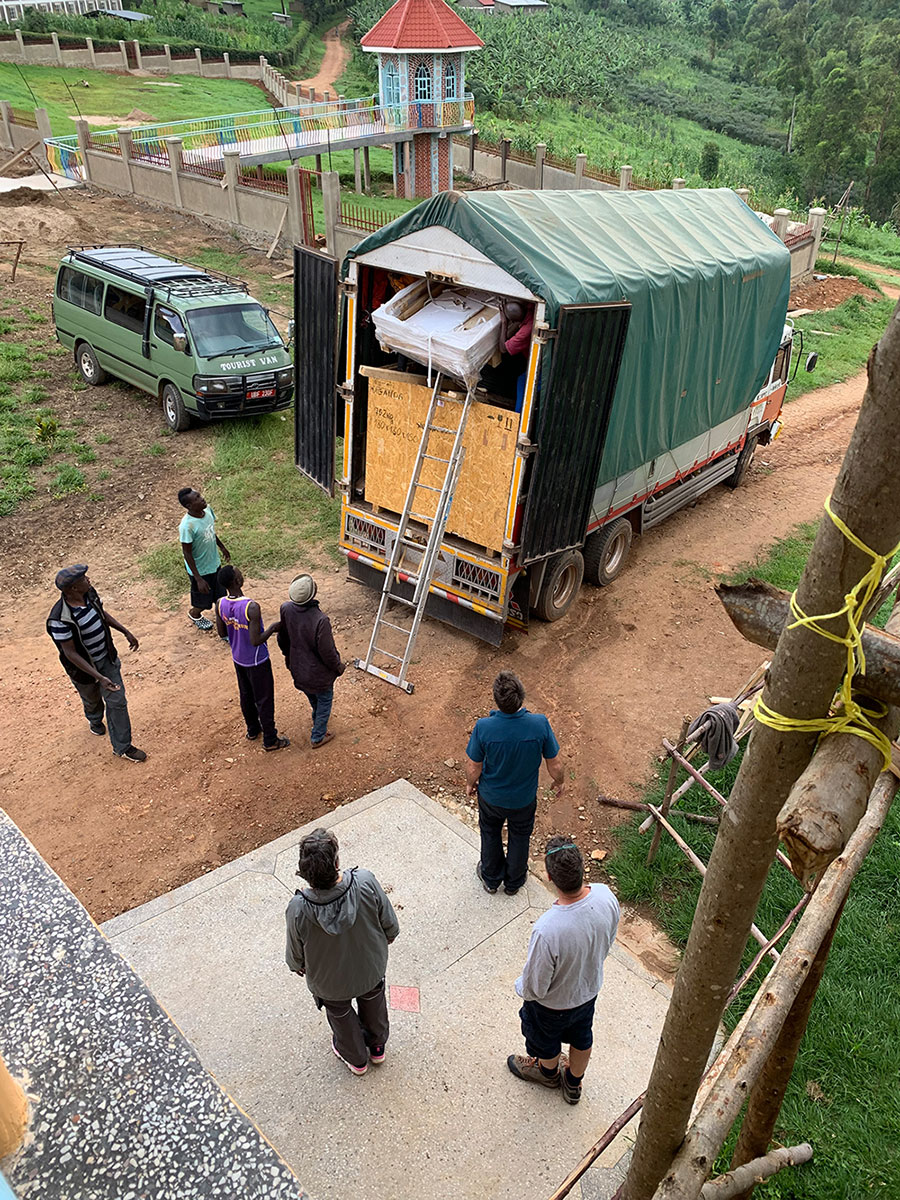 “The government in Uganda intends to step up the expansion of renewable energies and energy infrastructure enormously in the coming years,” said Alexander, who also used to work at SMA Solar and has been committed to the TOGETHER association for more than ten years. “Part of that will involve significantly increasing the role of PV and other renewable types of energy, such as hydropower. At the same time, the utility grid is being expanded to improve supply.”
“The government in Uganda intends to step up the expansion of renewable energies and energy infrastructure enormously in the coming years,” said Alexander, who also used to work at SMA Solar and has been committed to the TOGETHER association for more than ten years. “Part of that will involve significantly increasing the role of PV and other renewable types of energy, such as hydropower. At the same time, the utility grid is being expanded to improve supply.”
Two buildings wait for energy supply
Over three weeks of vacation, the five team members plan to use this trip to install an Off-Grid PV system for the Bulyansungwe health center and another for the Nakazaiba vocational school. A number of helpers will be lending support in the field, particularly technician Godfrey, who has been involved in almost all the projects to date. The necessary components for the energy system, equipment, and tools, as well as all further material required for installation, were shipped by sea freight months ago and had been sitting in the customs warehouse in the capital, Kampala, waiting to be picked up when the team arrived from Germany. Unfortunately, however, customs officials initially put the brakes on any quick start to the project. Suddenly there were documents missing. Certificates and equipment had to be labeled. Only after a week of anxious waiting did some of the shipment finally get under way. The rest of the equipment followed a few days later.
The electricity is there – but when?
The Bulyansungwe health center does have a connection to the utility grid, but the unstable grid power was putting it at the mercy of frequent power outages. An energy system with a battery connected now ensures a stable and reliable electricity supply. This required the team of five to install not only the PV modules on the roof but also three Sunny Boy solar inverters, two Sunny Island battery inverters and a 70 kWh battery storage system, which can be relied upon to make electricity available even on days when sunshine is in short supply.
Students can saw, solder, and sew thanks to solar energy
The Nakazaiba vocational school is looked after by an aid organization with which the association maintains friendly links and has also gained an Off-Grid solar system. Without access to the utility grid, the equipment in the workshops for sewing, metalwork, carpentry and shoemaking has previously run on electricity provided by generators. Because the students use the workshops primarily during the daytime when the sun is shining, solar energy makes for an economical and reliable alternative. Three Sunny Boy solar inverters and three Sunny Island battery inverters now convert solar energy into solar power, or store it in the 48 V battery to make it available for use later on.
Water made available through the force of gravity
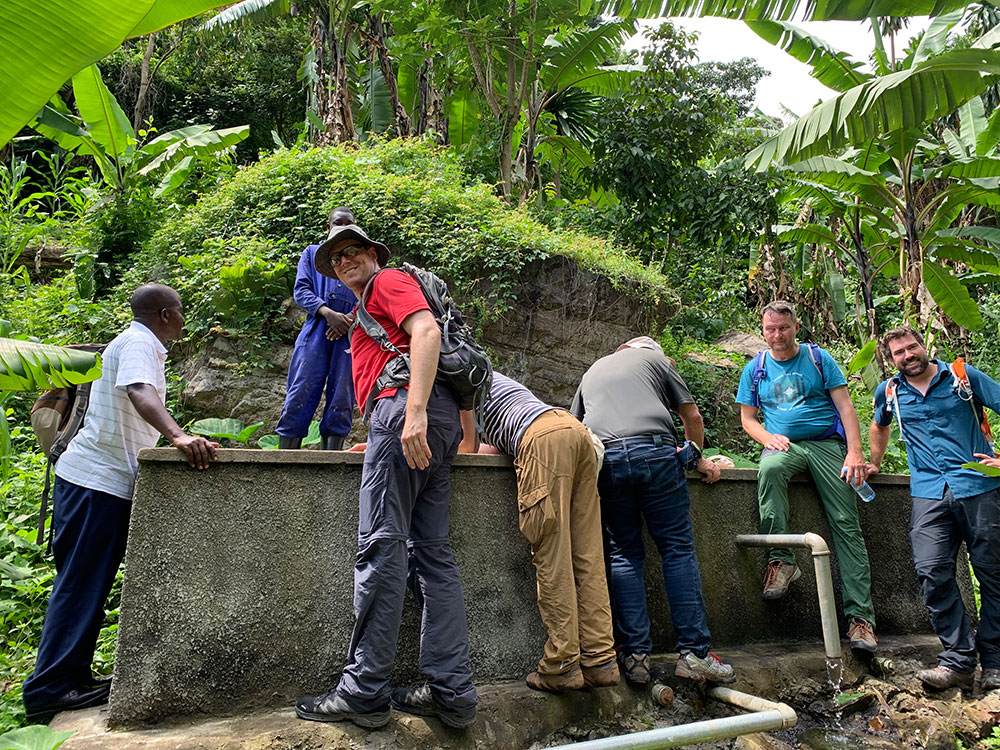 Juri Billinger, who is in charge of fault analysis at SMA’s Quality Assurance department, had responded to an appeal on the SMA intranet and was in Uganda with the team for the first time. He was particularly impressed by the water project that the association had carried out in its early days in Uganda. “The area where the water pipes are laid is huge. They supply clean drinking water to more than 10,000 people,” said Juri. “Planning was obviously the responsibility of hydraulic engineers, and the pipes cover many kilometers, stretching out across the region like a spider’s web, the water coursing through them propelled only by the force of gravity. There are taps sticking out of the ground everywhere, and people use them to fill up canisters with water. Larger public buildings have receiver tanks connected directly to the supply. The health center, for example, has its own water supply in the building.”
Juri Billinger, who is in charge of fault analysis at SMA’s Quality Assurance department, had responded to an appeal on the SMA intranet and was in Uganda with the team for the first time. He was particularly impressed by the water project that the association had carried out in its early days in Uganda. “The area where the water pipes are laid is huge. They supply clean drinking water to more than 10,000 people,” said Juri. “Planning was obviously the responsibility of hydraulic engineers, and the pipes cover many kilometers, stretching out across the region like a spider’s web, the water coursing through them propelled only by the force of gravity. There are taps sticking out of the ground everywhere, and people use them to fill up canisters with water. Larger public buildings have receiver tanks connected directly to the supply. The health center, for example, has its own water supply in the building.”
Smoke kitchens will linger long in the memory
 All installations, including repair and maintenance work on PV systems erected on previous occasions, took the five-strong team around two weeks in total. They spent the rest of the time on leisure activities and talking to local people, which left them with plenty more experiences that they are not likely to forget any time soon.
All installations, including repair and maintenance work on PV systems erected on previous occasions, took the five-strong team around two weeks in total. They spent the rest of the time on leisure activities and talking to local people, which left them with plenty more experiences that they are not likely to forget any time soon.
One thing that will linger long in the memory is the “smoke kitchen” at the vocational school. In Uganda’s smoke kitchens, food is prepared on open fires, which means that the walls of the kitchens are often stained black by soot. People are used to cooking in this way and to the smoky flavor of their meals, but these kitchens are becoming more and more of a problem for health and the environment. Consequently, alongside various measures for improving energy supply (see below), another of the Ugandan government’s goals is to increase the reach of clean cooking technology from 15% to 50%.
Thanks to the PV system, the vocational school can now operate a smoke-free kitchen, without soot particles dirtying the walls, cabinets and electrical equipment as well as the air itself.


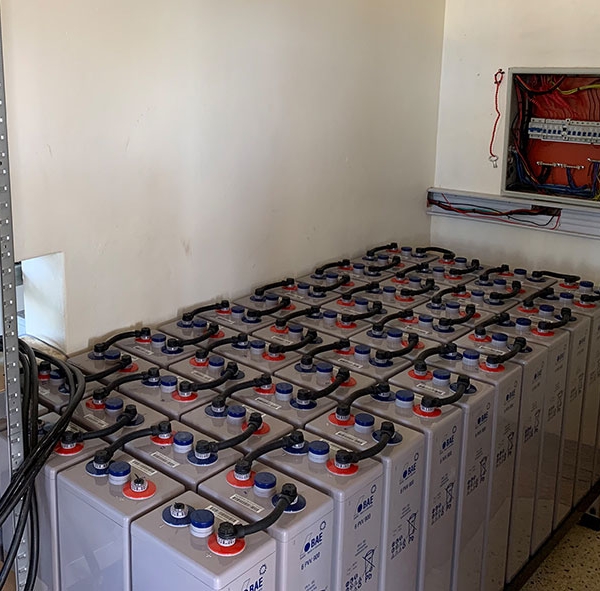
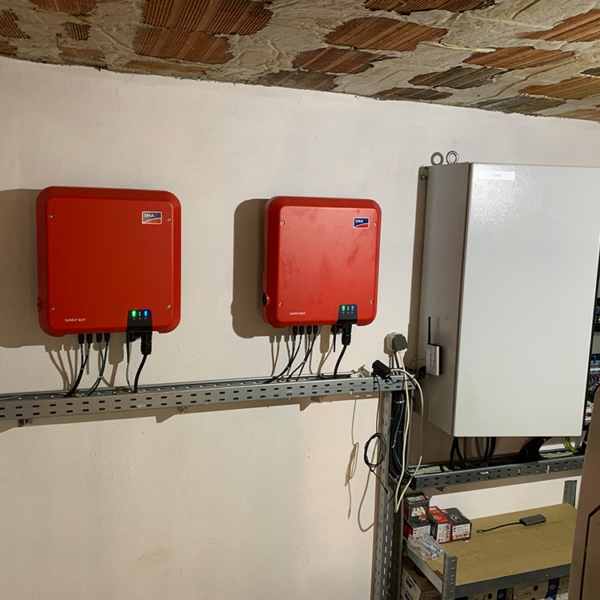
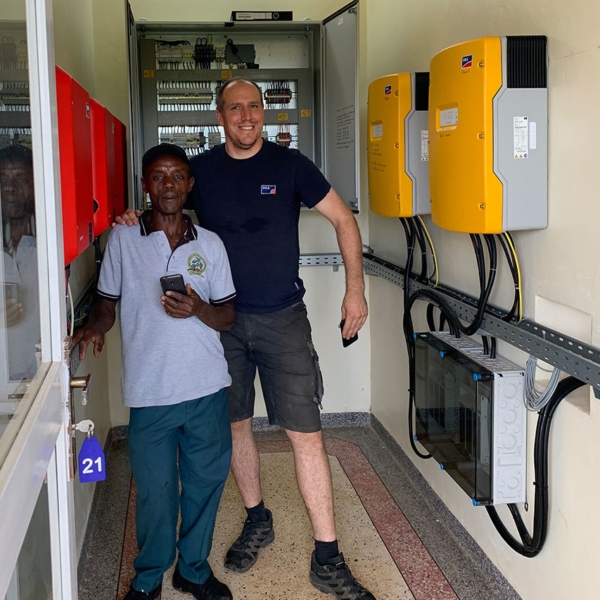

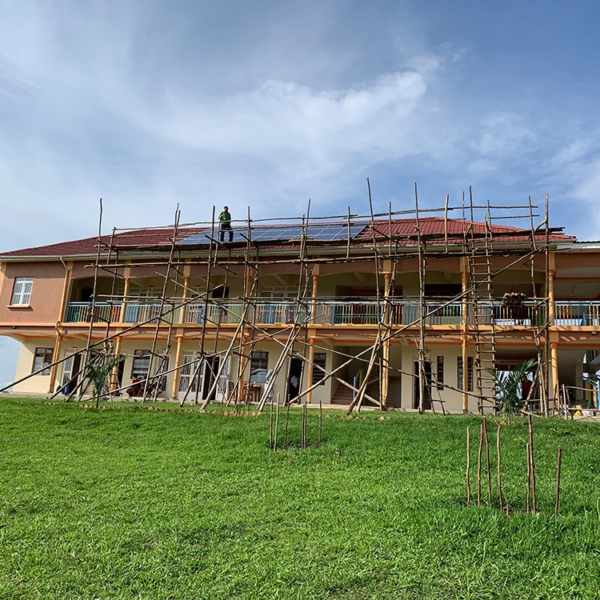
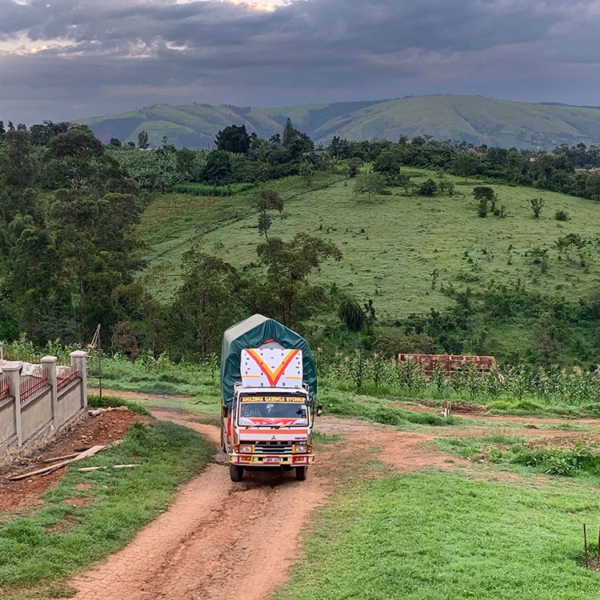
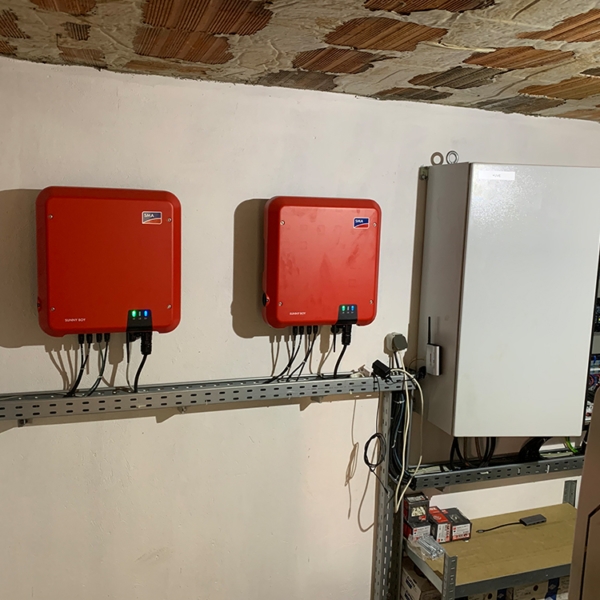
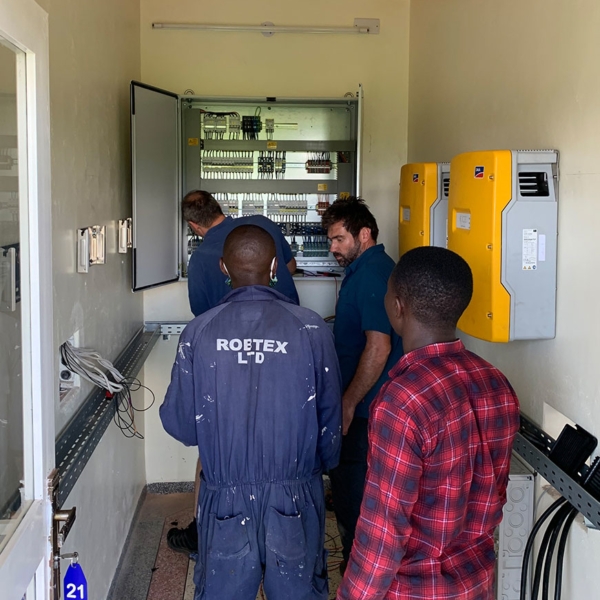
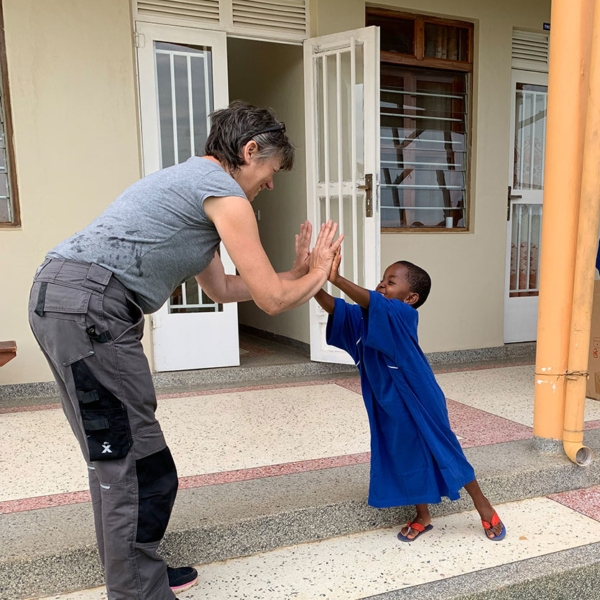
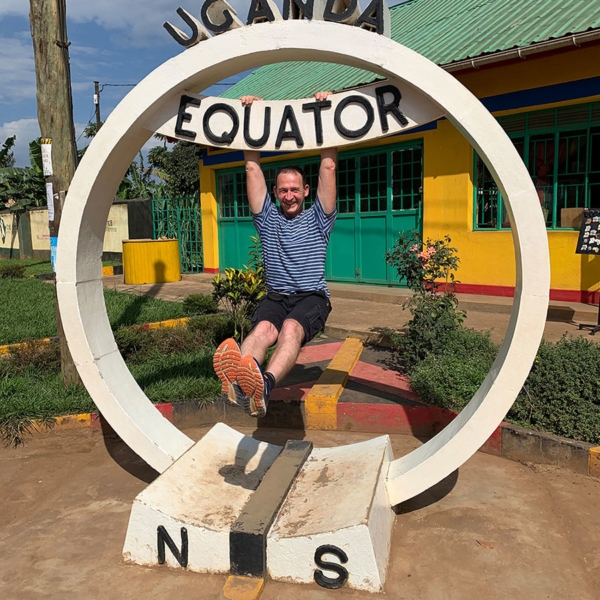
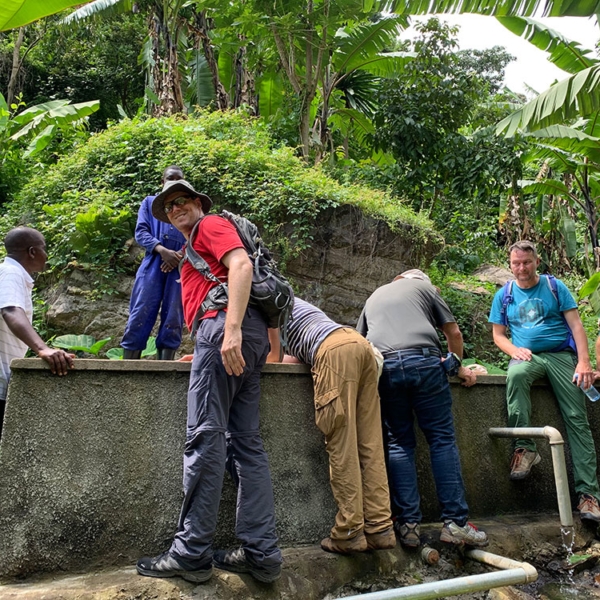
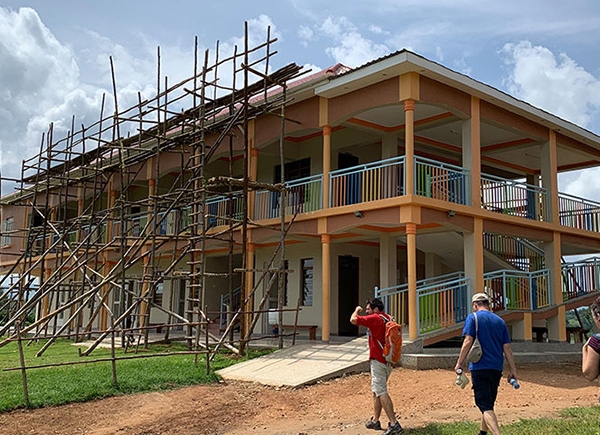
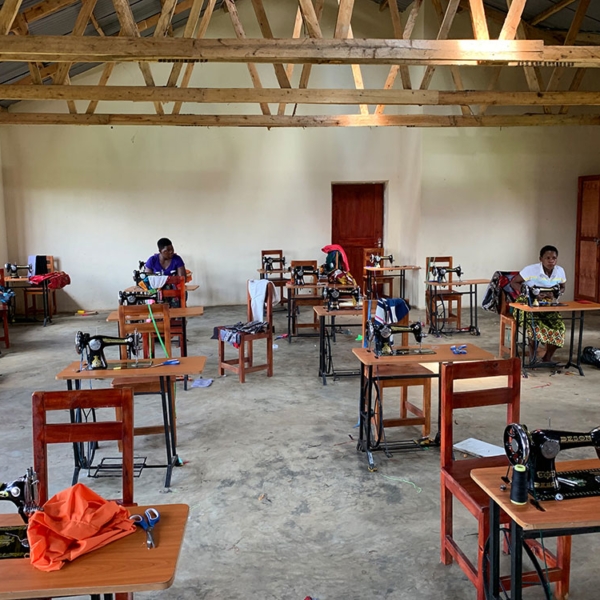
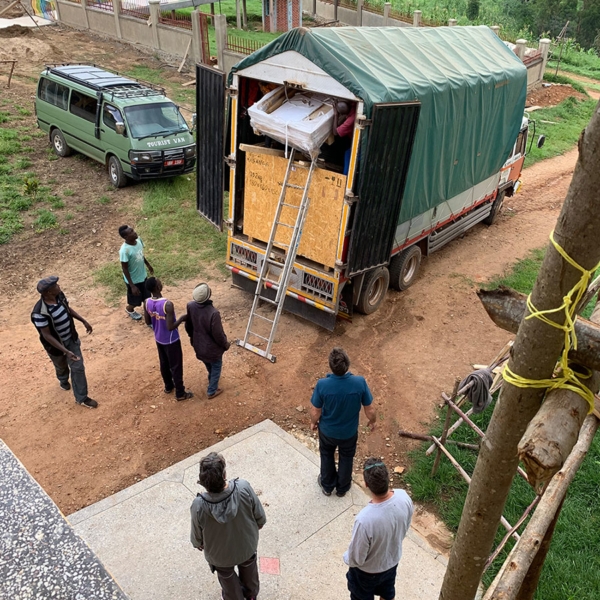
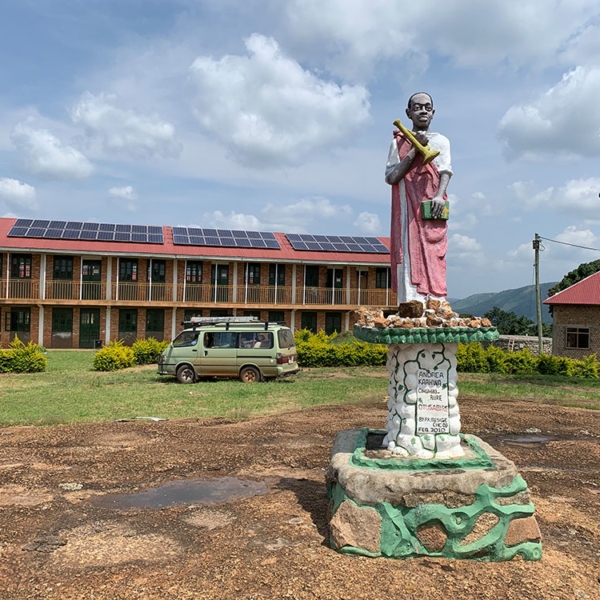
Hello, can you supply sma inverters to uganda? I would like to upgrade my solar system.
Hello Lawrence,
Thanks for being interested in our SMA products.
Please consider that SMA is only selling to wholesalers and not directly to end customers.
For further support, please get in contact with our regional Sales team.
Thank you.
Sunny regards
Christiane
Hello sma , am#Mugume Rogers from( son of technician tugume) who works at tohifu_buryansungwe project Ibanda -UGANDAthanks for improving the sophisticated technology in energy systems worlwide, I am requesting do u have desk lamps and torches, if so how much, what type and where in Uganda can I reach you?
Hello Mugume,
Thanks for your kind feedback.
As a manufacturer of inverters and systems solutions, we do not sell desk lamps or torches.
Sunny regards
Christiane